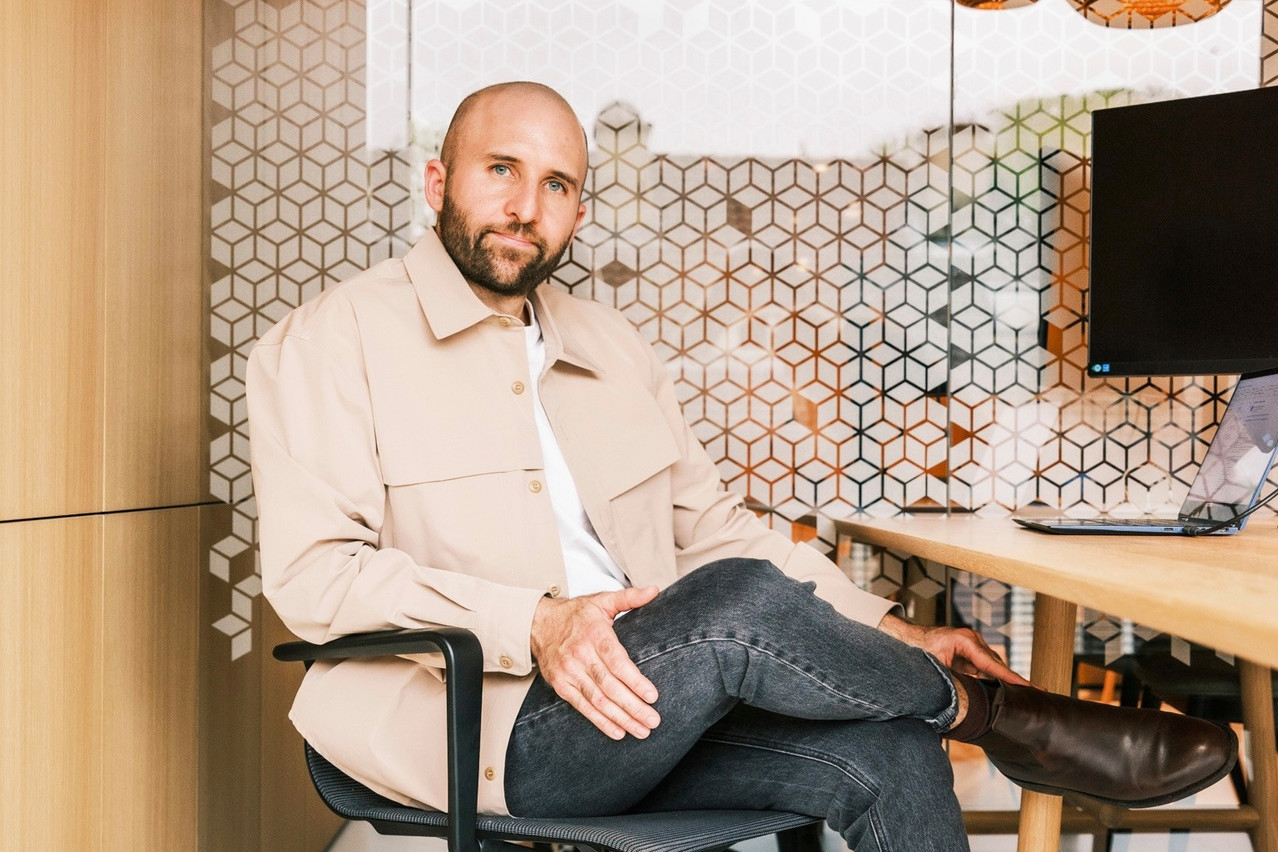Founded in 2021, the financial and legal technology firm Docify has passed its “desert” moment, securing its first client in 2022--and more since then--and moving from a “flex office” situation to a modern and sun-filled physical building in Hollerich, where its developers are busy at work during the day of my interview with co-founder and CEO . But the firm may not be there for long--they’re growing, says Joly, and Docify may soon find itself in need of bigger premises.
Around 10 people work for the company (with freelancers on top of that), and the plan is to reach 15 employees next year. “Then I think we will calm down, because at some point, it’s better to also start to stabilise the team, and not grow too fast.” Docify hasn’t raised external funding--it’s just financed by its clients--and the CEO prefers to be careful.
“So far, we have grown extremely quickly, in one year,” says Joly. “You need to make sure you grow at a relevant pace. You cannot anticipate too much the demand and the hiring. But if you are too slow, you will miss the demand and maybe [the client] will go to another provider. So this balance is something which is hard to find.”
From document automation…
“When we launched Docify, we were focusing on document automation,” Joly explains. “The goal was to approach any professional of the financial sector--mainly investment funds, fiduciaries, law firms--and help them with automating any type of document.” This can include prospectuses and contracts, for instance, but the “usual business” is corporate secretarial work. “We are very agile with different languages,” he says, and documents can be in English, French and German.
Clients then asked for new developments, and in response, the company now automates other documents, like structure charts and share registers, allowing Docify to offer customers what Joly calls “a complete product.”
…to process automation
“Recently, we were asked to also automate processes,” he adds. This new product will go live in early January and allow clients to streamline processes, “with the objective being to reduce the number of emails exchanged.” On top of that, there will no longer be any need to send attachments via email, says Joly. How often have you written an email that says ‘please see the document attached,’ pressed send, then realised you’ve forgotten to attach the actual file? With Docify, “you can just do all those exchanges on a secured platform.”
All discussions will also be centralised, meaning there’s no need to search for a single message amongst thousands of emails, argues Joly, and if one person is on holiday, other colleagues can see--“in one glimpse”--an overview of the project, “where we stand, where we are in the transaction.” The goal is “really to streamline the processes.”
Is there interest in this type of service? “Yes,” he replies, “we see a strong demand.”
How security concerns are tackled
Employees can be the target of phishing operations and databases can be hacked. Are there any risks associated with the Docify platform?
“We are ISO-certified,” explains Joly, and the company has spent energy and investment in ensuring security. Links, for instance, can only be shared with a specific person who has the right “access mode.” That means you cannot transfer the link to a person who does not have the appropriate access. “From a security perspective, it’s really optimal.”
In addition, “the documents never move.” Users can grant permission to other people to allow them to access certain information, data or documents, but the documents themselves are not transferred.
Potential geographic expansion
Instead of being “country-driven,” Docify is focusing more on the ability to allow clients to use the platform in different locations. But, Joly adds, “if I had to name a couple of countries, our strategy is to go to countries like Luxembourg with a strong, financial sector. So I would say London, Ireland, Switzerland, Monaco--these kinds of locations.”
What’s more, because Docify offers users the ability to create their own processes and templates, that means clients can be fully autonomous and do not depend on the fintech to run the technology. “We are just an efficiency tool, [and] no-code, which is a big differentiator.”
Artificial intelligence to assist clients
The financial sector is heavily focused on using artificial intelligence to make processes more efficient--is this also something on Docify’s radar?
“We plan to have AI features in the very near future,” replies Joly. But this will be for “specific business cases, because we don’t want to use AI when it’s not 100% relevant or necessary.” AI could, for example, assist clients with creating templates or adapting them to new situations.
Read also
“We also want to move into board minutes,” he says, and the launch of this feature is expected “very soon.” This is more of an “upgrade” of existing products, because Docify automates documents and board minutes are--indeed--a type of document. The aim is to boost efficiency, he adds, but some clients are a bit hesitant to use AI with such sensitive discussions.
What sets the company apart
“What makes us different from the others, I think, is that when a client has feedback, we try to listen to it, understand it and implement it,” says Joly. “In the past few months, we have done a lot of developments directly asked for by our clients. It makes a big difference,” he argues, “and that’s really how we want to differentiate ourselves.” The fact that Docify is in Luxembourg and is “very close” to its clients is another differentiating factor.
Roughly 80% of its clients are investment firms--private equity firms, real estate funds--and the company tries to grow with their demand. “We are not trying to limit Docify to a specific area,” he concludes. “Our goal towards those types of clients is to really become a full-service technology [solution]. So that’s the direction we want to take.”
